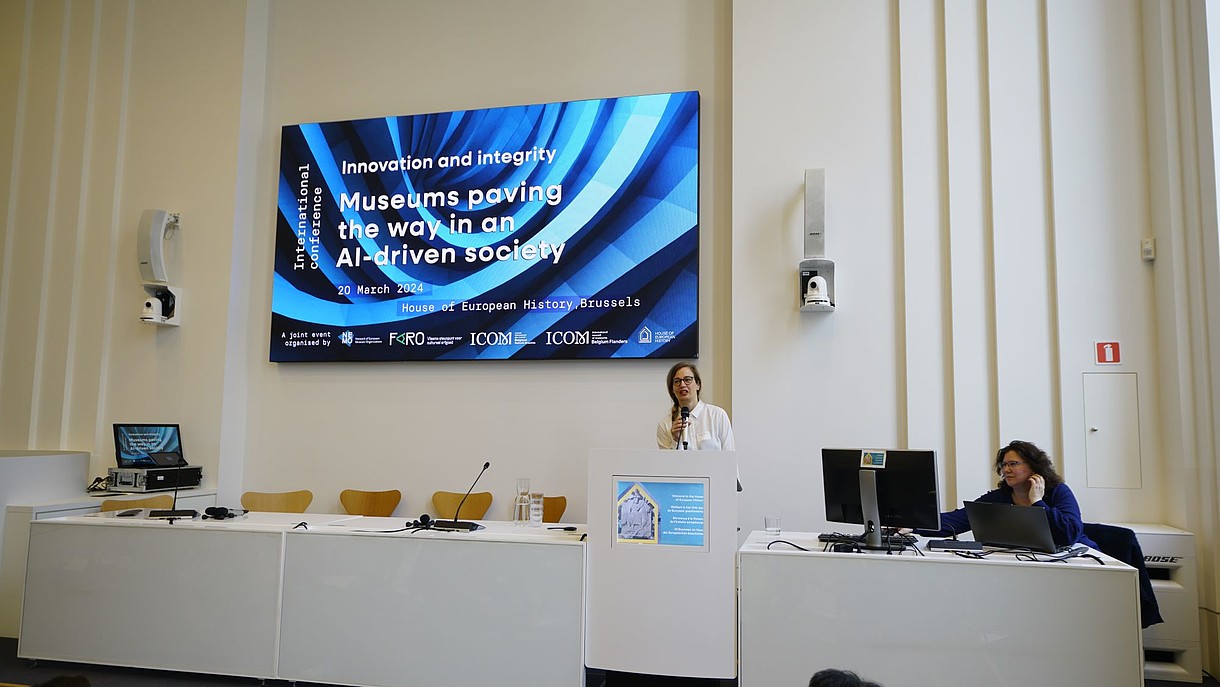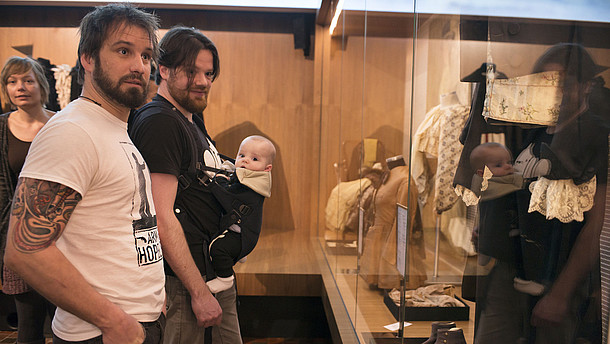The recommendations were discussed and presented to invited policymakers from communal, national and European level at the international high-level conference Innovation and Integrity: Museums paving the way in an AI-driven society on 20 March 2024 in Brussels, Belgium.
The recommendations urge policymakers to develop a political vision and regulatory framework for museums in the context of AI progress. The potential of museums as partners in the development of ethical practices related to emerging technologies should be recognised. Financial resources and long-term funding must be allocated for infrastructure, equipment, and training of staff to ensure that AI is successfully applied in the Public Cultural Domain. Furthermore, a European competency hub should be established to bring together expertise and practices, knowledge and resources from experts and practitioners for the sector.
The one-day conference was co-organised by NEMO, FARO, ICOM Wallonie-Brussels, ICOM Flanders and the House of European History. The event was initiated to addresses the topic of AI in museums to ensure that the sector is proactively shaping and leading its implementation rather than being shaped from the outside. Museums need to engage in the broader conversation about the power and influence of AI and its impact on visitors. It is vital for museums to take agency of the new technologies and to support an increased public understanding of AI. Considering their position as highly trusted institutions, museums can add reliable and well researched information to the public discourse that is increasingly faced with misinformation.
Access the press release and review below the the three recommendations in full:
- A political Vision for Museums and Cultural Heritage in an AI driven Society
Recognising the unique position of museums and cultural heritage as pillars of trust within society, it is imperative to integrate them into a regulatory framework. Artificial intelligence in museums needs to be addressed and shaped so that technological developments do not simply reshape museums from the outside. Collaborative efforts between governments, regulatory bodies, and museum professionals can ensure that museums play a pivotal role in the development of ethical practices related to emerging technologies.
- Financial Investments to apply AI successfully in the Public Cultural Domain
Financial resources must be allocated for infrastructure, equipment and highly qualified human resources, enhancing museums’ professional capacities.AI needs to source high-quality, interoperable data and properly described metadata. Copyright issues must be resolved. Museum professionals need adequate skills to perform these tasks, to keep pace with rapidly evolving AI capabilities and to address sector-specific concerns. Furthermore, standing commitments to support the cultural heritage sector should be expanded to ensure the quality and quantity of digitalisation required by Cultural Heritage Data Spaces and the European Collaborative Cultural Heritage Cloud.
- Establishment of a European AI Innovation Hub for Cultural Heritage
To foster creativity, innovation and collaboration, to centralise expertise and knowledge and to face challenges for the sector associated with AI, there is a need for a dedicated competency centre in Europe. This space would serve as a hub to bring together expertise and practices, knowledge and resources in a network of and for professionals, ensuring digital innovation and development across the diverse European Cultural heritage sector - in alignment with the values of human-centred design, privacy, and open-source practices.




